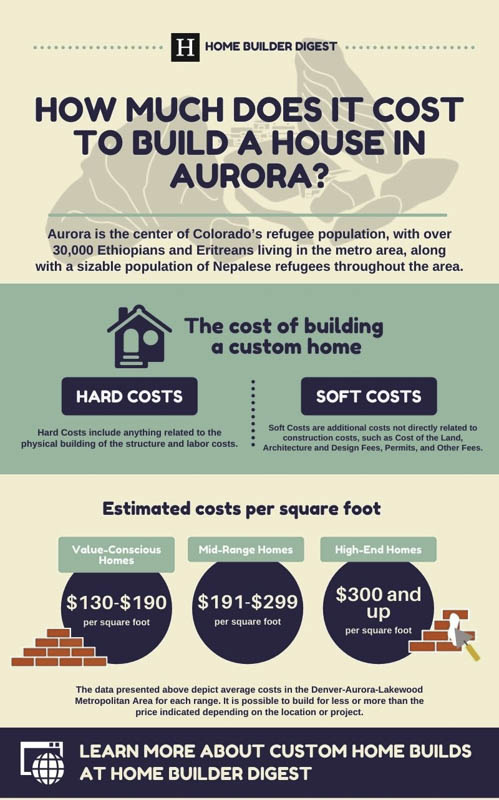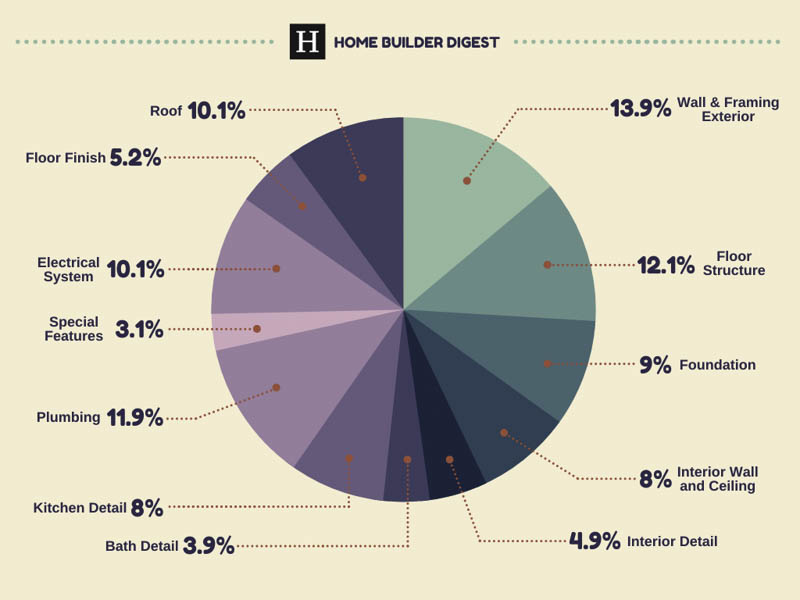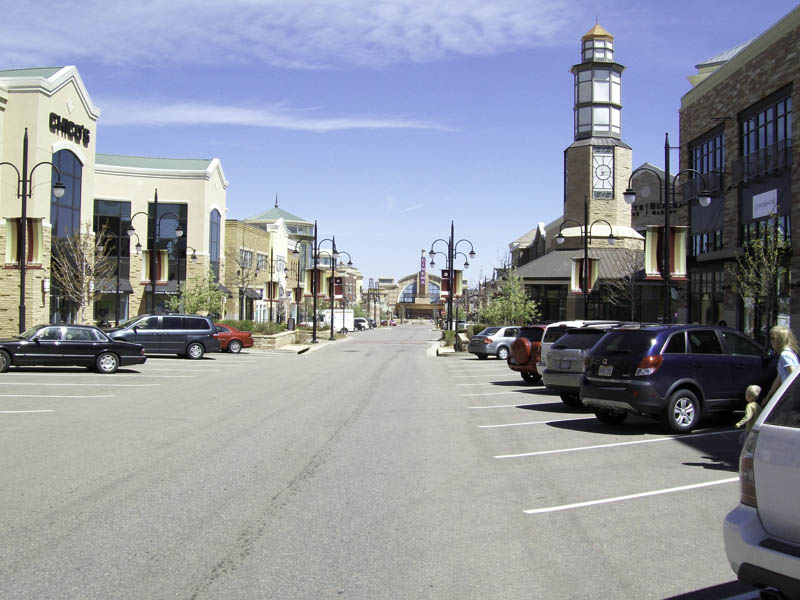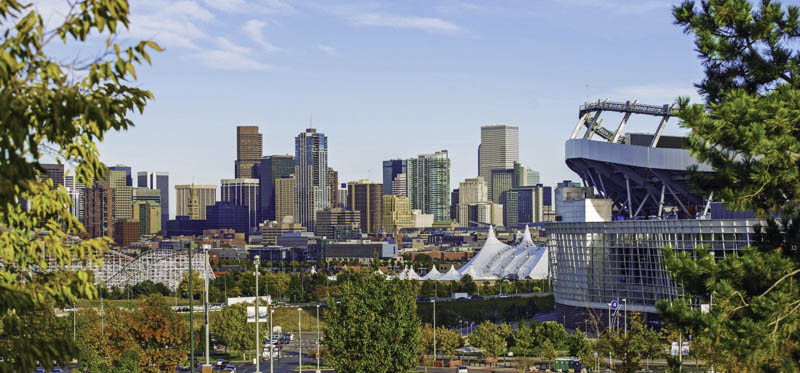Home » Cost Guides » Colorado Cost Guides » How Much Does it Cost to Build a House in Aurora?
Although it is the third-most populous city in Colorado, Aurora ranks as the number one most diverse city. The city is the center of Colorado’s refugee population, with over 30,000 Ethiopians and Eritreans living in the metro area along with a sizable population of Nepalese refugees throughout the city. A melting pot of cultures and cuisines, the city has a consistently growing economy. Additionally, innovation is rampant among various industries in Aurora. Many are trying to find new and creative ways to revamp the city’s food market and local handmade goods; others are excelling in the field of life sciences and medical research through the Fitzsimons Innovation Campus and Anschutz Medical Campus. These campuses pushed the city’s healthcare system to be redesigned and now serves as a model for healthcare centers worldwide.

The Cost of Building a Home in Aurora

The U.S. Bureau of Census estimated that the average cost to build a home in the country costs around $100-$500 per square foot. Forbes Advisor suggests the same range and estimates that the average price is about $300,000 or $150 per square foot, excluding the land. This value may increase up to millions depending on many factors, including location, size, and materials.
The median home building cost in the Denver-Aurora-Lakewood metropolitan area is $190 per square foot, as per the online contractor platform BuildZoom (BZ). Homes can be built for as low as $130 per square foot and as costly as $300 per square foot or more. Project owners will need to have an average budget of $325,000 – $750,000 to construct a 2,500-square-foot home in the area.
As mentioned, the total building costs may increase up to millions, but it can also decrease. Aside from the project owner’s preferences, the construction industry is experiencing several issues that significantly affect the total homebuilding price. Supply issues on both materials and labor workforce are making the fees volatile. Experts suggest setting aside 15% as a contingent budget to avoid surprise changes, especially the delay costs. To further help with planning, listed below are the various factors to be considered as these also directly affect the overall costs. These factors are split into two categories: hard costs and soft costs.
Hard Costs
Get a free cost estimate
Hard costs pertain to the aspects that are involved in the physical building of the home. This includes the building costs, materials, and labor. Extra amenities or home additions are also included in this category, alongside the installation of major systems.
The basic building costs in Aurora range from $120 – $180 per square foot, including labor fees, materials, and site cleanup. Building a 2,500-square-foot home will cost roughly $300,000 – $450,000. This estimate may either increase or decrease depending on the size, complexity, level of finish, and location.
The value breakdown according to job or task is as follows:
- Foundation and Concrete: $30,000 – $140,000
- Framing: $30,000 – $188,000
- Dry In (exterior, windows, doors, and roof): $44,000 – $140,000
- Interior Finish (drywall, paint, flooring, trim): $73,000 – $330,000
- Mechanical System Installation: $30,000 – $140,000
- Water and Sewer: $17,000 – $30,000
- Electricity: $10,000 – $30,000
As mentioned, labor fees are included in the estimated value above. Although, there are instances that these workers will bill project owners depending on the deal and negotiations. If this is the case, the following is a breakdown of the costs for each service:
- Electrician: $65 – $125 per hour
- Roofing Contractor: $6,100 – $11,500
- Framer: $20 – $25 per square foot — $50,000 – $62,500
- Interior (drywall, trim, and finish): $6 – $13 per square foot — $15,000 – $32,500
- Plumbers and HVAC installer: $45 – $225 per hour
Adding extra amenities will relatively increase the total livable space of the home. Such extensions can be quite costly. The addition of sidewalks, patios, and driveway requires concrete work, and this typically costs $5 – $6 per square foot. Upgrading the interior finishes, such as drywall and trim work, will cost an additional $15 – $150 per square foot. Kitchen and appliances, including countertops, cabinets, and kitchen flooring, improvements will cost $30 – $85 per square foot.

Figure 1. Typical cost breakdown of a single-family home constructed using the conventional method, according to Home Builder Digest. Image Source: National Cost Guide.
Soft Costs
Get a free cost estimate
Soft costs cover all the expenses that go beyond the physical home building. These include land acquisition, securing of building permits, and architectural or design fees. Most of these are settled on the pre-construction stage, and some are to be paid upon project completion.
Figure 2. Soft cost percentage and average price range of additional fees, determined from the overall cost of custom home building in Aurora.
Cost of the Land
Since the pandemic started, homeowners have wanted a more spacious home and a bigger lot to incorporate into their daily lifestyle. This allows them to extend their homes whenever they need or want.
Residential lots available in Aurora have a median cost of $1,262,000 or $17 per square foot, as per various real estate marketplaces, such as Zillow, Realtor, and Redfin. The cheapest land listed costs $170,000 for a 3.59-acre or 156,380-square-foot land— approximately $1-$2 per square foot. On the other hand, the most expensive land listed costs $900,000 for a 0.38-acre or 16,553-square-foot land — approximately $54 per square foot.
According to Aurora’s Unified Development Ordinance, the minimum site area for residential districts ranges from 5,000 square feet to 7,000 square feet. Following this regulation, residential land acquisition in Aurora will cost $85,000 – $120,000.
Land development must be done after the land acquisition to prepare for the project. This job usually costs $9,000 – $70,000 in Colorado, which covers about 3-8% of the overall project cost.
Permits and Other Fees
The Public Works and Building Division of Aurora requires project owners or contractors to secure a building permit before starting construction. Recently, the city adopted the 2021 Building International Code. Additionally, Aurora also extended the submission deadline for plans reviewing because of the nationwide shortage of various building materials. An online copy of the building permit application is available on the city’s public works department website.
Every permit has a corresponding fee, most of which are determined based on the total size of the building. According to the city’s fee schedule, construction of new single family homes costs $1.10 per square foot with a minimum fee of $2,000 and a maximum fee of $10,000. The total permit fee to be settled when building a 2,500-square-foot home will cost $2,750.
Additional fees are also required for water service and sanitary sewer connection. The corresponding price is as follows:
Architecture and Design Fees
Architects and designers use various ways to charge their services. The most commonly used methods are by measuring a percentage of the total, charging on an hourly basis, or designing by the square foot.
In terms of percentage, architects in Aurora usually charge 9-10% of the total construction costs, according to ProMatcher. Assuming that building a 2,500-square-foot home costs $375,000, the total architecture fee will be roughly $34,000 – $37,500. This estimated value is only for the agreed-upon scope of work; any services that go beyond are usually charged hourly.
Designers typically charge $125 per hour for the hourly rate, excluding the printing and copying costs, historic and zoning fees, and engineering fees if required. It will take around 400-600 hours for a basic architectural service to complete, bringing the design fees to $50,000 – $75,000. Full architectural service takes longer because of the amount of work, and it will take about 1,095 hours to complete, sometimes more depending on the project. Total design fees will result in roughly $137,000.
For the per square foot basis, designs are charged $7 per square foot on average. It may cost as low as $4 per square foot or as high as $10 per square foot. Designing a 2,500-square-foot home will cost around $18,000.
How do Aurora’s custom home building costs compare to nearby cities?

Get a free cost estimate
Data from the online contractor platform BuildZoom (BZ) shows that the recently built single family homes in the Denver metro area cost $130 – $200 per square foot. More specifically, value-conscious homes cost $130 – $150 per square, mid-range homes cost $150-190 per square foot, and high-end homes cost $190 – $300 per square foot.
Denver is known to be more affluent when compared to the other principal cities in the metro area. Homebuilding costs in Denver range from $200 to $350 per square foot. On the other hand, homebuilding cost in Lakewood is roughly the same with Aurora ranging from $100 to $230 per square foot.
Aurora is the lowest among the three cities in terms of home value, with single family homes costing an average of $520,000. Lakewood homes cost roughly $635,000, making them more expensive by 21%. Denver homes have the highest value with a median value of $700,000 — 35% more costly than Aurora.
What Leading Custom Home Builders and Architects that Serve the Aurora Area Say
Get a free cost estimate
Trent Minshall of Thomas Sattler Homes predicts that the residential construction industry will remain strong in 2022 and relatively the same compared to 2021. Statistics show that building permits issued in Colorado increased 48.6% — 60% were single family homes. As consumer confidence increases, the demand in the home building sector also increases, pushing the median home price to inflate by 17.7%. Experts forecast that the inflation peak will be felt in the winter of 2022. Additionally, increasing labor costs are expected to continue as labor workers remain scarce, especially with the ongoing high demand and Colorado wages outpacing recent inflations. Minshall advises project owners to determine the feasibility and get started sooner rather than later. The tough supply chain lead time may take longer than anticipated to normalize, and some items are being discontinued. “The earlier projects start, the sooner material and labor quotes can be locked in and ordered before they increase,” Minshall explained. He also said that owners should factor in a contingency buffer into the home construction budget for unexpected expense increases and delays in the building schedule.

Billy Jackson of Jackson Design Build explained that various home customization directly affects the overall estimated cost per square foot. Home layout is one of those factors as adding for a walk-out basement, finished full non-walk-outs, or second and third floors will significantly change the cost per square foot. Another example is the site work: size, shape, and condition. Long driveways, soil import and export, retaining walls, shrub removal or preservation, and area of disturbance should be considered in setting a realistic budget expectation. In terms of the construction industry’s future, Jackson is hopeful that the volatile material costs will level out by the third quarter of 2022. Unfortunately, labor shortages may continue to be a problem in the industry. Despite the intention to increase labor fees, there is not yet a solution to create more skilled workers. Unless practical actions are taken, labor costs will continue to rise. On the bright side, Jackson is optimistic that as long as the economy recovers progressively, custom home demand will remain strong for at least two years.
The Future of Aurora’s Residential Construction Industry
Get a free cost estimate
The Colorado housing industry was thriving in 2021, and experts are expecting that this will continue to 2022 as the economy stabilizes further. The ongoing trend of residents, primarily millennials, moving to the suburbs keeps the demands strong for home buying and new housing. This may also push prices to a higher slope until the various industry issues are solved. An increase of 15-18% was seen in the year-over-year median price of single family homes across the state. According to Carla Ferreira, principal of the real estate group The Aurora Islands, this does not discourage home buyers. They are pressured to secure a home before the expected interest rate and rising home prices kick in. With the limited housing supply, home buyers are now considering building new homes.
There has been an 8.9% increase in 2021 in the number of single family permits issued in Colorado — around 29,000 new construction permits. The U.S. Census Bureau and the Colorado Business Economic Outlook Committee forecast that the home building permits for single family homes will increase by 3-4% in 2022, while multifamily permits will decrease by 6%. The growth will be accompanied by the city of Aurora’s move to acquire more water resources and distribution for the last decade. This strategy has delivered over 7,000 single family lots to homebuilding firms for the past three years and will help supply more than 40,000 lots in the future. Despite the effective approach, homebuilders are still wary about the supply chain issues as this continues to delay projects. Unless solved, they are forecasting that this will further increase the new home permit values by 1% per unit in 2022 — from 2021’s median permit value of $320,500 per home unit.
Considering building a home in Aurora?
Contact us for a free consultation
